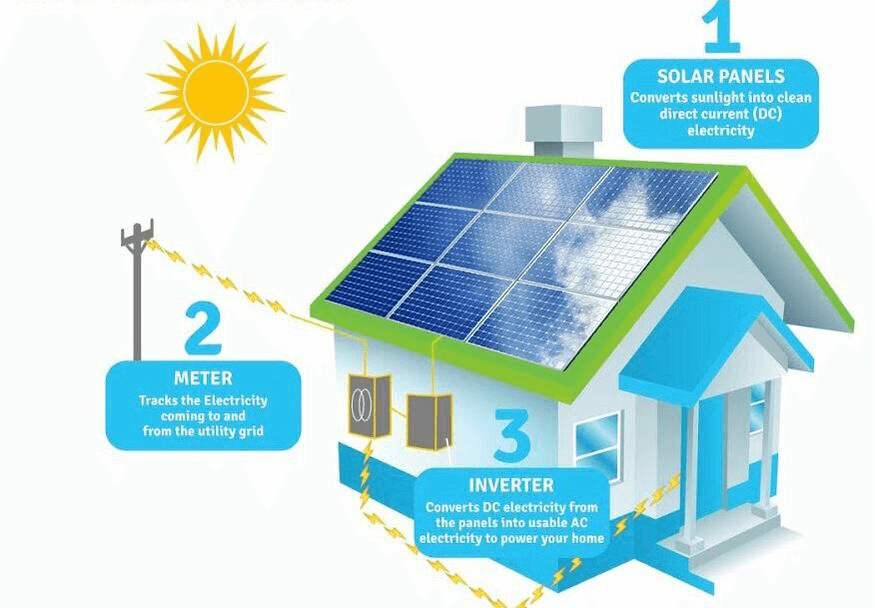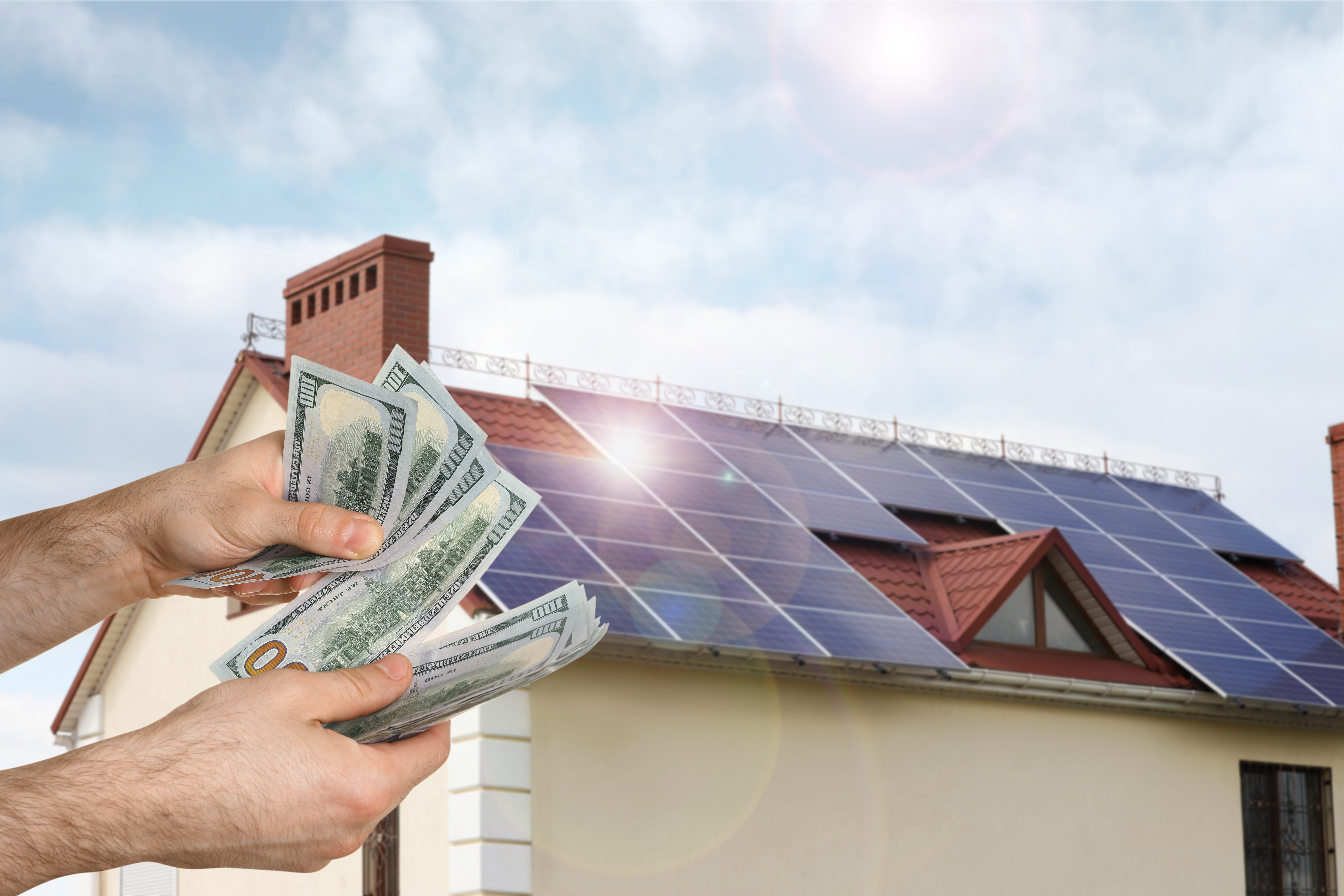Why Simply Solar Illinois is the Top Choice for Renewable Energy
Why Simply Solar Illinois is the Top Choice for Renewable Energy
Blog Article
Just How Solar Energy Can Assist You Save Money and Reduce Your Carbon Impact
The integration of solar power right into your energy profile presents a compelling possibility for both financial savings and environmental stewardship. By taking advantage of the sunlight's power, homeowners can considerably lower their regular monthly energy expenses while additionally guarding versus the changability of future energy costs. The shift to solar contributes to a marked decrease in carbon exhausts, aligning personal finance with broader environmental goals. As numerous federal government incentives come to be available, the question develops: exactly how can one properly browse the preliminary financial investments and continuous advantages of solar modern technology to make the most of both financial and environmental gains?
Understanding Solar Energy Financial Savings
While the transition to solar energy typically entails an initial financial investment, comprehending solar power cost savings is vital for homeowners and services alike. Solar power systems can significantly minimize power expenses by using the sun's energy, equating right into significant lasting economic advantages. By producing their own electrical power, users minimize dependence on grid power, which undergoes changing prices. These financial savings can collect in time, usually resulting in a fast roi.
Moreover, solar power systems may get approved for different monetary rewards, including tax obligation credit scores and rebates, further boosting their cost-effectiveness. The schedule of web metering enables users to market excess power back to the grid, creating an additional revenue stream. These elements add to the total savings linked with solar power.

In addition to direct monetary cost savings, solar power uses the added benefit of boosting property value. Homes geared up with photovoltaic panels are frequently much more eye-catching to buyers, as they guarantee lower power costs - Simply Solar Illinois. Understanding these elements is important for any individual considering solar power, as it highlights not just the prospective monetary gains, but also the wider ecological and economic benefits of embracing renewable resource options
First Costs vs. Long-Term Conveniences
When assessing solar energy, it is very important to evaluate the preliminary prices against the long-lasting benefits. The upfront financial investment for photovoltaic panels, setup, and relevant devices can be considerable, often ranging from $15,000 to $30,000, depending upon the system size and home power requirements. This preliminary expenditure may deter some homeowners; nonetheless, it is critical to take into consideration the prospective savings over time.
Once installed, solar power systems can significantly lower or perhaps remove monthly electrical power expenses, resulting in significant long-lasting economic benefits. Studies indicate that property owners can conserve anywhere from $10,000 to $30,000 over the life expectancy of their planetary system, typically 25 years. In addition, numerous states supply incentives, tax obligation credit scores, and refunds that can counter initial expenses, making solar more easily accessible.

Lowering Your Carbon Footprint
Lowering your carbon footprint is an essential consideration in today's eco mindful culture, and embracing solar power is among one of the most efficient strategies to accomplish this objective. Solar power is a tidy, renewable source that considerably lessens reliance on nonrenewable fuel sources, which are major factors to greenhouse gas emissions.

Moreover, the widespread fostering of solar innovation encourages the growth of green work and supports innovations in energy storage space and effectiveness. The more individuals and organizations buy solar power, the better the collective decrease in carbon emissions, cultivating a cleaner atmosphere for future generations.
Government Motivations and Rebates
Embracing solar energy not only benefits the setting but can likewise bring about significant monetary cost savings, especially with the accessibility of federal government incentives and refunds. Numerous government, state, and local programs are developed to urge house owners and businesses to buy solar power systems, making the transition much more economical.
Among one of the most prominent incentives is the Federal Investment Tax Credit Scores (ITC), which enables planetary system proprietors to subtract a significant percent of the installation costs from their federal taxes. This incentive has been pivotal in decreasing the in advance costs linked with solar power systems. In addition, several states offer their own tax credit histories, grants, and refunds that can even more improve cost savings.
Moreover, some city governments supply real estate tax exemptions for solar installations, ensuring that homeowners do not face enhanced residential property tax obligations as an outcome of their eco-friendly energy financial investments. Energy companies may additionally supply incentives, including internet metering and feed-in tariffs, which enable solar power users to market excess power back to the grid.
Picking the Right Solar System
Selecting the ideal planetary system is vital for making best use of power effectiveness and monetary benefits. The decision hinges on numerous elements, consisting of energy needs, spending plan, and available area. Home owners need to begin by examining their power usage to determine the system dimension required for optimum performance.
Next, think about the various sorts of solar technologies offered. Simply Solar Illinois. Photovoltaic (PV) panels are one of the most common, converting sunshine directly right into electricity, while solar thermal systems concentrate on heating water. Each type has unique advantages depending on specific needs
Budget factors to consider are likewise paramount. First setup costs can vary significantly, so it is very important to compare quotes from multiple carriers and discover blog here financing options. Government incentives and discounts can additionally minimize the economic burden, making solar systems a lot more easily accessible.
Final Thought
In summary, solar energy offers a sensible option for achieving significant cost financial savings while concurrently lessening carbon check out this site discharges. The preliminary financial investment, though substantial, yields substantial long-term monetary benefits, with prospective cost savings varying from $10,000 to $30,000 over 25 years. The ecological benefits of solar power contribute to sustainable methods crucial for combating climate change. Government incentives improve the usefulness of solar technology adoption, motivating a shift in the direction of a cleaner, extra economically reliable power source.
Report this page